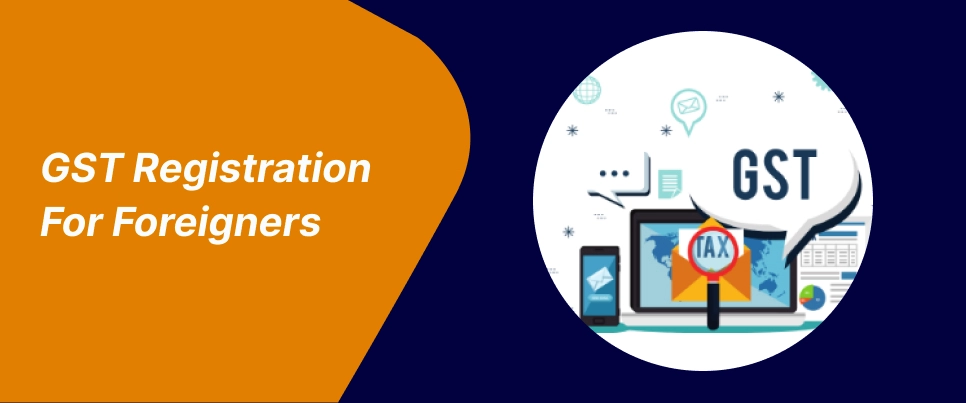

GST Registration is a mandatory process for foreign taxpayers involved in supplying goods or services in India. Foreigners engaged in transactional activities related to goods or services in India fall under the category of taxable persons. They must register for GST to comply with Indian tax regulations.
Foreign taxpayers can initiate the GST registration process online by providing the necessary information and documents to the Goods and Services Tax Network (GSTN). This process is streamlined and user-friendly.
Understanding and navigating the GST registration process in India is essential for foreign non-resident taxpayers looking to establish a business presence. “MyStartupSolution” offers expertise and assistance in obtaining your GST certificate efficiently. Don't hesitate to start your journey into India's vibrant business landscape.
“Non-Resident Taxpayer” as defined under GST laws in India. Section 2(77) of the Central Goods and Services Act, 2017 (CGST Act) provides a clear definition of this crucial concept, which plays a pivotal role in the realm of taxation.
Let's dissect the definition provided under Section 2(77) of the CGST Act:
"A non-resident taxable person means any person who occasionally undertakes transactions involving the supply of goods or services or both, whether as principal or agent or in any other capacity, but who has no fixed place of business or residence in India."
India's GST regime requires foreign companies to submit specific documents during the registration process. These documents help verify the company's authenticity and ensure compliance with Indian tax laws. Let's explore each of the required documents in detail.
A Permanent Account Number (PAN) card is a fundamental requirement for GST registration. It serves as the unique identifier for tax purposes. Foreign companies must provide their PAN card to initiate the registration process. Obtaining a PAN card is a straightforward procedure, and it's essential for any business operating in India.
The Certificate of Incorporation is another critical document for GST registration. It confirms that the foreign company is legally registered and recognized by its home country's authorities. This document provides the Indian tax authorities with the necessary information about the company's existence and legitimacy.
The Memorandum of Association (MOA) and Articles of Association (AOA) outline the company's objectives, structure, and rules of operation. These documents are essential for GST registration, as they provide insights into the company's business activities and governance structure. It's crucial to ensure that these documents are comprehensive and up to date.
A board resolution is a formal document that authorizes specific individuals within the foreign company to act on its behalf during the GST registration process. This resolution demonstrates that the company's leadership is committed to complying with Indian tax laws. It should clearly specify the individuals responsible for GST-related matters.
Foreign companies must also provide identification and address proof for their directors. This helps confirm the identities of the individuals responsible for the company's operations. Acceptable documents for this purpose include passports and utility bills.
If you're planning to start a business in India as a foreign non-resident taxpayer, understanding the GST registration process is crucial. “My Startup Solution” is here to assist you in this journey, ensuring a smooth process subject to government processing.
Step 1: Appoint an Authorized Signatory
To kickstart your GST registration, you need to appoint an authorized signatory who is a valid PAN card holder in India. This individual will be responsible for handling GST registration and compliance on your behalf.
Step 2: Promoters GST Declaration
The promoters of the foreign company must sign a GST declaration, validating the appointment of the authorized signatory in India. This declaration serves as a formal confirmation of your intent to operate within India's GST framework.
Step 3: Submit application with the necessary documents.
Next, the authorized signatory will submit the GST registration application for the non-resident taxable person, including all the required documents. These documents typically include your business registration details, proof of address, and financial statements.
Step 4: Generate a Reference Number
Upon submission, a reference number is generated for remitting the GST deposit. This deposit amount depends on your expected tax liability and must be paid to proceed with the registration process.
Step 5: Remit GST Deposit
Depending on your anticipated tax liability, you must remit the GST deposit. This deposit is a prerequisite for obtaining GST registration and allows you to participate in the Indian tax system.
Step 6: Document Verification
Once the GST deposit and documents are submitted, they undergo thorough verification by government officials. This step ensures that all the provided information is accurate and complete.
Step 7: Issuance of GST Registration Certificate
After successful document verification, the authorities will issue your GST registration certificate. This certificate is valid for a fixed period and authorizes you to conduct business in India legally.
Foreign entrepreneurs often find themselves overwhelmed by the complexities of India's taxation system. “My Startup Solution” is your trusted partner for simplifying the GST registration process. With years of experience and a team of experts, we ensure that your business complies with Indian tax laws seamlessly.
Foreign taxpayers can initiate the GST registration process in India by providing the necessary information and documents online to the Goods and Services Tax Network (GSTN).
The advantages of GST registration for foreigners in India include ease of doing business, lower taxes for small businesses, the ability to collect taxes legally, claiming Input Tax Credit (ITC), and a seamless flow of tax credits at the national level.
The required documents for GST registration of foreign companies in India include a PAN card of the company, a Certificate of Incorporation, the MOA and AOA of the company, a board resolution, and the director's ID and address proof.






